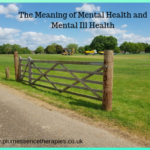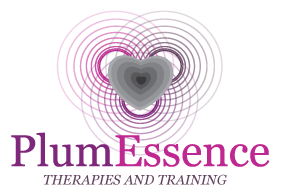 This is the first in a series of blogs and videos to help give you an initial awareness of mental health problems.
This is the first in a series of blogs and videos to help give you an initial awareness of mental health problems.
The videos and blogs will cover an awareness of:
Mental Health in general, stress, anxiety, phobias, depression, post-natal depression, bipolar disorder, schizophrenia, dementia, eating disorders, ADHD, OCD and PTSD. All of these subjects will be based on my personal thoughts, my personal experience, and research used to pass my Mental Health Problems qualification. I have also been asked to talk about the difference between bullying and banter, and alcohol and drug dependency.
I hope you will find the information interesting and informative.
So. What do we mean by Mental Health?
Mental health describes the emotional wellbeing, and emotional resilience of how someone is feeling and able to cope with everyday life and stresses, whether that’s in a positive or negative way.
This leads us to; what is meant by ‘mental ill health’?
Mental ill health is considered to be having a lower level of being able to cope, emotionally, with every day stresses, low personal confidence and self-esteem.
If you are mentally unwell, you tend to have low moods which can fluctuate from day to day.
Mental ill health can include suffering from such things as anxiety, low moods, depression and stress and we will discuss these further throughout this series.
To be considered as having mental ill health, the negative changes you experience must have an effect on you yourself and/or those around you.
Mental ill health can also be referred to as a mental disorder.
What are considered to be the components of mental wellbeing?
The key components of mental wellbeing are considered to be: Resilience, Self-worth, personal perspective, the view of your concerns and problems, Flexibility of being able to cope, Coping Strategies and having the ability to develop and manage positive and supportive relationships.
To go through each in a little more detail:
Resilience is about you being able to persevere, live through and bounce back to your normal (whatever that is for you) after, and while suffering stressful, difficult and traumatic events.
Self-worth is the thoughts about yourself and being able to define yourself as a person, separate from the problems around you. I believe it is about learning and understanding your strengths and weaknesses and being able to use those to your advantage in coping well, mentally.
Having a healthy view of your problems is a healthier sign of a healthier wellbeing. It’s about being able to analyse your problems, to manage them and to not over-exaggerate them to the point where they become the definition of who you are, and your life.
In this case, flexibility is about being able to manage your own thoughts, emotions and behaviours in a more healthy and balanced way.
Coping strategies are the ways you use to cope with everyday life, stresses and problems for your physical and mental wellbeing.
Developing and fostering positive and supportive relationships are important to everyone’s wellbeing, especially mental wellbeing. It is often stated that we become the people with whom we most surround ourselves with, so having positive relationships can help people to see other ways of living and perhaps try to establish those ways within their own lives. Supportive relationships are important to help people through low and tough, times.
What are the risk factors in developing mental health problems?
There are so many to consider, and there is much written on this subject, but some of the main risk factors are have suffered as well as people I know, are: isolation, increased anxiety, low moods which can lead to depression, reducing self-worth and self-esteem. All of these can happen quickly, or over a period of time, depending on the situations someone is experiencing at the time.
Anxiety can set in as people start to worry about the future and the possible outcomes, usually in a negative way. Anxiety can lead to further isolation and uncertainly about the future. This is how easy it is to get into this spiral of negative thought patterns and reduced positive mental wellbeing.
Depression can take many forms, some of which I will expand upon in this series. And, again, there has been a considerable amount written on the subject. Depression can last for short periods or longer periods of time. Depression can cause someone to further isolate themselves, especially if their self-worth is low and cannot, or will not, seek help, love, support and friendship. As I’ve said, depression can take many forms and there is still a stigma attached to mental health problems which stops people from seeking helps.
Risk factors can include poor physical health, side effects of medication, unresolved trauma and concerns, unhealthy relationships and loneliness. Each in turn, you could cope quite well with, but when more than one risk factor is present, the ability to cope starts to reduce, continuing to lower your self-esteem, confidence and depressive state.
That’s all for now. The introduction to mental health awareness.
In the next video and blog, I will provide some of the examples of mental health problems that we will expand upon throughout the series, how mental health care has changed over time and an indication of the problems people with mental health problems, may face day to day.
If you have any subjects you would like to cover, please let me know. If there is anything on here you would like to talk about, or find out about therapies and training offered by PlumEssence to help and educate about mental health, then look at www.plumessencetherapies.co.uk or call Tracey on 01889 808388 or 07803399594

One thought on “The Meaning of Mental Health and Mental Ill Health”